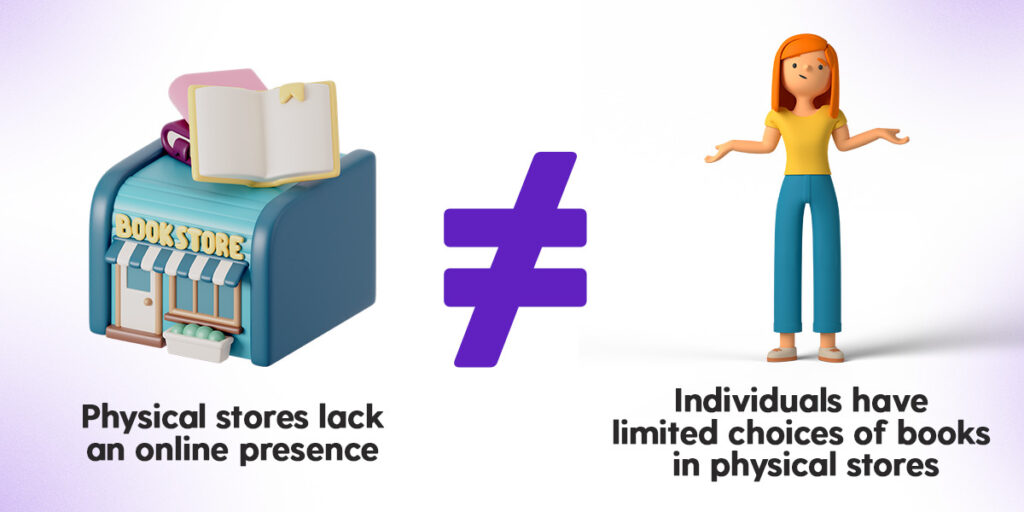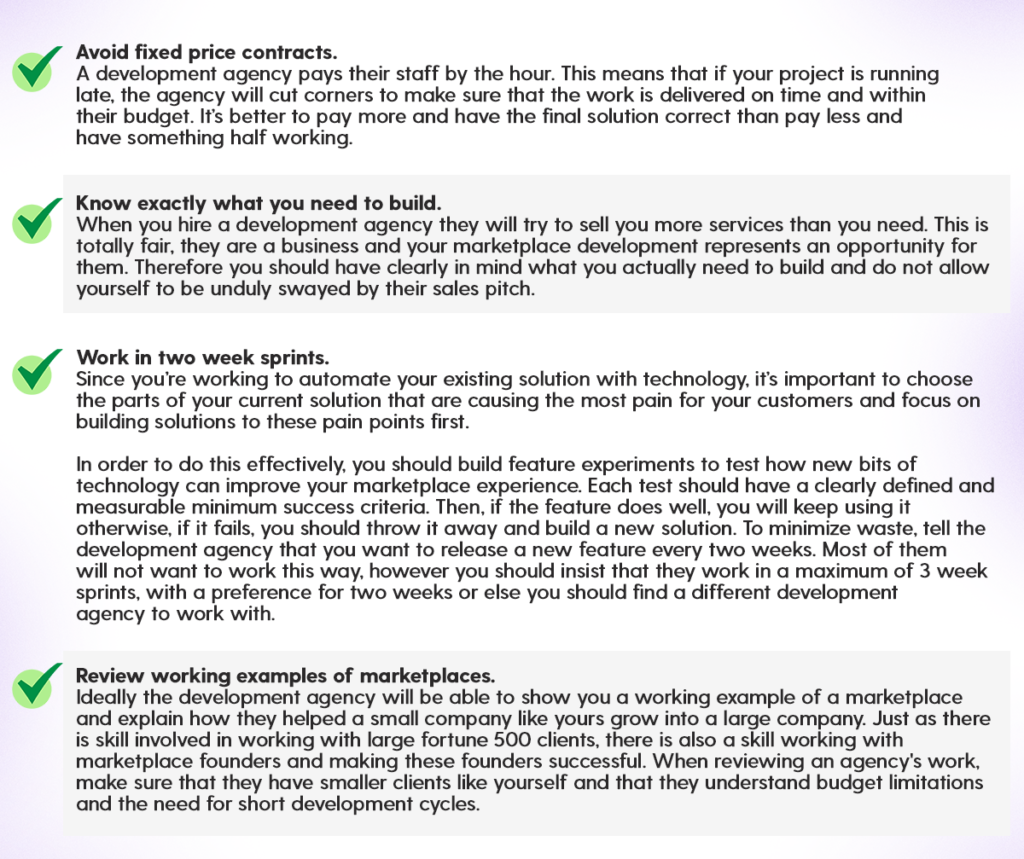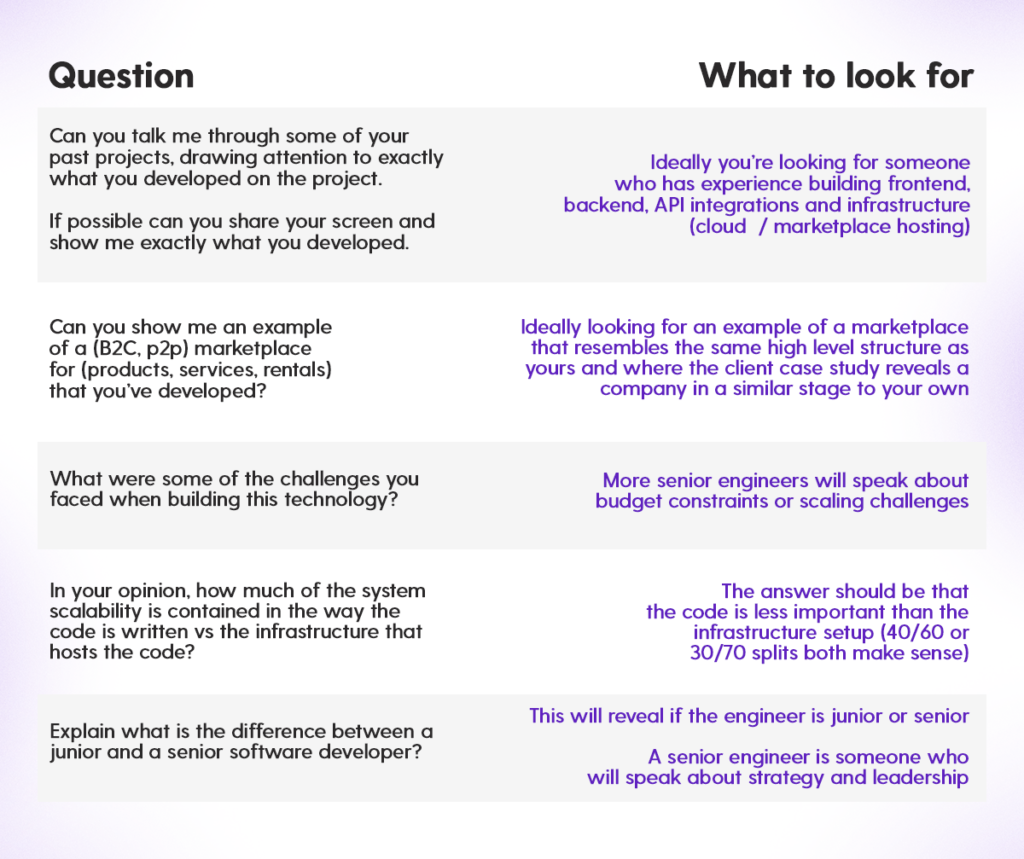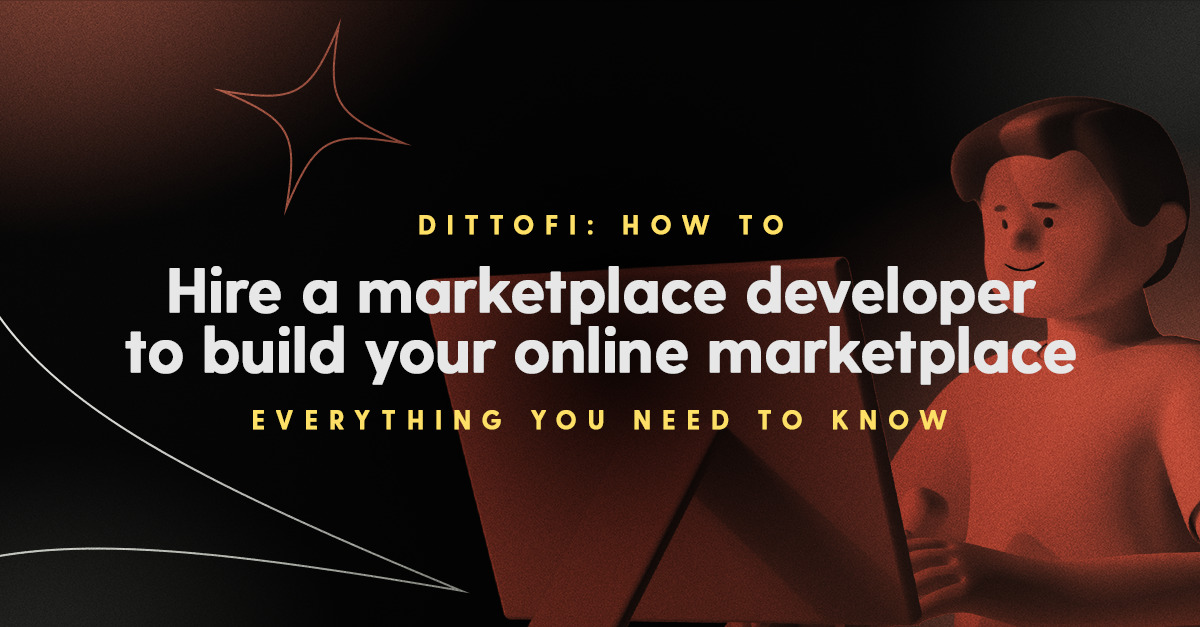Hiring a marketplace developer is really difficult.
If you hire a marketplace developer too soon, this can cause your marketplace to fail. If you hire a developer without the requisite experience, this can lead to poorly constructed, non scalable and insecure software.
In this article we take a look at when is the right time to hire a marketplace developer, how to find a marketplace developer and tips to determine if a developer is a good fit for your business.
Do you need a marketplace developer?
The number one reason that marketplaces fail is that they hire expensive marketplace developers to build too much technology when they are not ready.
As a rule, the only reason to build any technology is to automate an existing process. Therefore the only time you actually need to hire a marketplace developer is when you are looking to automate part of an existing solution and there is no way to do this without hiring a software developer.
So – before you think about hiring a marketplace developer, we highly recommend that you build a solution first to a problem.
But how can you build a solution without a developer?
Well – a great example of a marketplace that built a solution with only very limited technology is one of the original online marketplaces, Amazon.
In the beginning Amazon focused on building a solution for individuals who wanted an easier way to buy books and for bookstores who wanted to reach a wider audience. To put this story in context, in the pre-Amazon world, if you lived in a remote state, you would have had very limited access to books.
The available solutions would be to try and get access to mail order catalogues where you could browse books. These catalogues were often only available if you physically visited a bookstore. The catalogues were, of course, always out of date. You could then place an order with the bookstore to get your book and it would take several weeks for the book to be delivered.
Enter Jeff Bezos and Amazon! Jeff saw the existing solutions and had a vision to use the internet to make it easier for bookstores and individuals to connect and transact online. He thought that individuals would prefer to browse and buy books from the comfort of their own home.

In order to test this hypothesis, Jeff built Version 1 of his marketplace.
Version 1 was simply a website where customers could place an order. From there, Jeff would then take the order and manually drive to the bookstore where he would purchase the book. He would then drive to the post office and mail the book to the individual who ordered the book.
This process worked however, it was very manual. Therefore Jeff used technology to incrementally improve the process. Over time and through continual improvement, Jeff was able to improve this process. Amazon is now the default for millions of people worldwide who want to buy products online. However, they are still looking for ways to improve.
If you want success, you should follow this same approach. Focus on building a solution for a particular target audience. Don’t be afraid of having manual steps in your solution and then use technology to automate parts of your process.
If you are in the idea stage, we recommend that you sign up to Dittofi and explore our no code marketplace solutions. These will allow you to build a marketplace without coding and to test your concept using our hybrid no code solution.
Once you have built a solution to a problem that people are willing to pay you for, the next step is to look for bottlenecks in your marketplace solution. These bottlenecks will jump out at you and customers will ask for new features. You will then look for ways to implement these new features inside of Dittofi’s visual development studio.
Only when the development work becomes too complex for you to handle or you no longer have time to do the development work yourself should you consider hiring a marketplace developer. When you do decide to hire a marketplace developer, you can either work with a marketplace developer from inside Dittofi or, you can export your marketplace source code and give this to a marketplace developer to work on directly.
How to find a marketplace developer
There are four main ways to find a software developer for your marketplace.
Find a technical co-founder
Finding a technical co-founder can be a great solution. It can help you keep unfront development costs low and will mean that you have someone technically skilled on your team who is (we hope) passionate about your project. However, there are also risks of bringing onboard a technical co-founder.
A functioning co-founder relationship is critical to the success of your company. You should therefore not engage with people who you’ve just met or who don’t have the same vision, values, work ethic, and long-term goals. The worst case scenario is that you give equity to a co-founder and then you find out that you either don’t like them or they are not willing to work on the business. In these cases, it will be difficult to get the equity back off them.
It can also be very challenging to find a good technical co-founder. I know plenty of founders who have spent years looking for a technical co-founder and, as of yet, have still not found one. This is all time wasted where your competition will be growing their marketplace. Furthermore, it’s not necessary to wait. You can already build a marketplace solution today using Dittofi’s marketplace templates.
Hire a freelancer marketplace developer
As we shall see later, hiring a freelance marketplace developer will cost you at least 3x less than hiring a development agency. This is because a development agency has to charge you 3x the wage that they pay to one of their developers in order to stay profitable. A freelancer meanwhile charges at only their hourly rate and with no markup.
The downside to working with a freelancer is that marketplaces are complex and often require the developer to be proficient in multiple different types of technologies such as frontend code, backend code, API development and marketplace hosting. Finding one person that has experience in all of these areas is incredibly rare and it is likely that they are already employed in an organization.
Therefore, if you choose to work with freelancers then you may have to hire multiple freelancers with different skills sets. Alternatively, you can work with a Dittofi freelance marketplace developer. Dittofi’s visual builder empowers junior and mid level freelancers to generate enterprise grade code in an entirely visual way.
Hire a development agency
Development agency are at least 3x more expensive than freelance marketplace developers. This is because development agencies need to make a profit on their engineers. They therefore mark up the developers hourly rates by at least 3x what they pay to the developer.
Even though it is more expensive, working with a development agency can have benefits. For instance, in theory, a development agency should be able to provide you with a multidisciplinary team. This team should be able to navigate the complexities of marketplace development.
All that being said, the high price tag represents a big risk for most idea stage startups without a sustainable source of revenue. However, as we saw above, if you’re at the idea stage, you should not be considering hiring a marketplace developer. Instead, you should be focused on creating a solution to a problem. Once you have this solution and people are paying you for it, then it is time to start incrementally building technology to automate the processes that you’ve created. Only at this point, when you can sustainably afford to hire a development agency should you hire a development team.
If you are at this stage, bear in mind that the development agency has their own best interests at heart. This means that the relationship is entirely transactional. I’ve worked with a lot of development agencies who drag out the development just so that they can keep billing the client so as to eat up their development budget. Furthermore, developers are normally assigned to multiple projects at once which can lead to project delays and a lack of focus.
Therefore, if you are going to a hire a development agency, you can consider using the following checklist.

Hire an in-house marketplace developer (or development team)
Another great option is to hire an in-house developer or development team. This will allow you to retain total control over your marketplace development and the resources.
For early stage marketplaces hiring in-house vs using a freelancer is going to be a very similar experience. Most likely you will want to hire a contractor or group of contractors to form your development team. This is because, depending on where your company is located, having full time staff requires you to adhere to certain employment laws which your marketplace will likely not be able to support at this time.
How to determine if a marketplace developer is a good fit for you
When it comes time to hire a marketplace developer, it’s very important that you interview the developer or the development agency. Once you’ve started down the path with a marketplace developer or a team, it’s very difficult to change direction.
A basic checklist of questions that you can ask a marketplace developer and answers include:

In addition to checking things like past work history and references, it’s also very important that you know exactly what your requirements are. This will allow you to communicate these to a marketplace developer. You should also explain the rationale behind your requirements to the developer and let them propose to you a plan for the delivery of each of the features that you’re looking to build. The plan should be in order of those features which are most important to alleviate pain that either you (as the marketplace operator) or the client is experiencing in your existing solution.
Dittofi’s marketplace solutions can help you understand what the foundational features of your marketplace should be. Therefore, we again strongly recommend that you login to Dittofi and click around our marketplace templates. This will allow you to understand what features are already there and that you can leverage. Each template comes with a full source code export so that you can export the source code and customize it as required.
Since Dittofi’s solution is packed full of features, this will significantly speed up the time it takes to build the solution. Furthermore, Dittofi’s visual development studio can make it easier for engineers with less experience to customize your marketplace. This is because Dittofi automatically transforms your visual designs into quality source code that you can export and own.
To fully leverage Dittofi’s marketplace solutions, it’s important to fully understand its capabilities. There are a few ways to gain this understanding:
- Watch video demos of Dittofi’s different marketplace templates.
- Login to Dittofi, choose a marketplace template and install it yourself
- If you’re a developer, you use Postman to explore the API endpoints available within Dittofi’s marketplace template.
One last thing to mention here is that you should not try and push the marketplace developer to do something that they think is a bad idea. This is because no one wants to work on a feature that will never be used. Therefore, focus on using technology to improve the solution that you’ve developed for your client. Work in short 2 – 3 week development sprints. On each feature release, set a minimum success criteria for the feature and report the results back to your marketplace developer to keep them engaged on your project.
If you would like any help building your marketplace, check our Dittofi’s marketplace templates which can be used to help build, launch and test your initial marketplace idea or schedule a call with one of our marketplace specialists and learn how you can work with our marketplace experts to help guide your marketplace development journey at all stages.
Happy building 🙂
Become a Marketplace Insider
Join our inner circle for exclusive insights, coveted trade secrets, and unparalleled strategies – your journey to marketplace dominance begins here.

